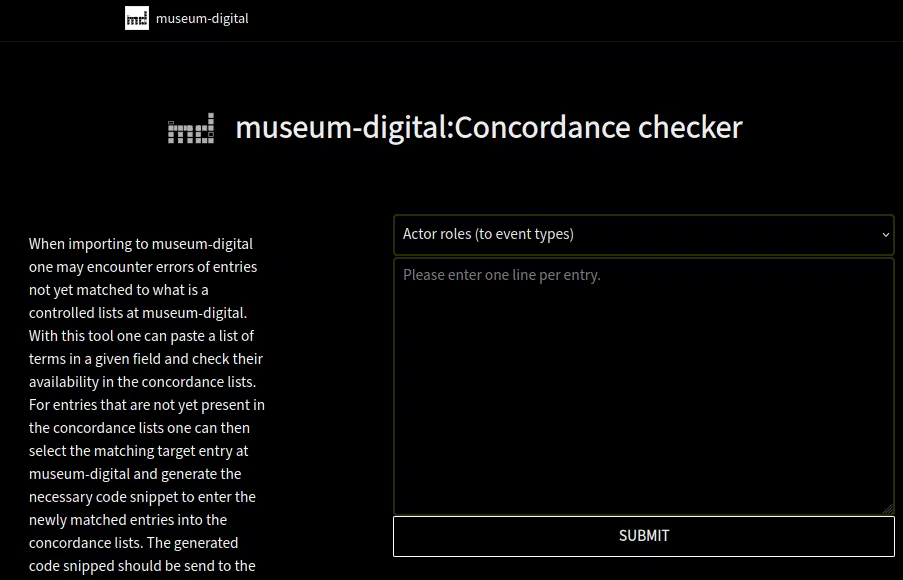When one runs an import to museum-digital – specifically one focused on internal collection management data – there is a chance to encounter errors of unmatched entries. The import tool identified that one tried to import a yet unknown value to what is a controlled field in musdb. Common issues appear especially with actor roles and entry types.
Say, a museum’s previous database used actor roles over an event structure to express who created an object. As such, the museum entered that the object has a linked actor X that is linked to the object as a “main creator” and a linked time Y marked as the “creation time”. During the import, these roles (“main creator” and “creation time”) are then translated to museuem-digital’s event types to form an event: The object was created by actor X at the time Y. This works, because the terms “main creator” and “creation time” have been matched to the creation event type.
If a term is not yet matched to a corresponding value of a controlled list in museum-digital, the importer will simply abort the import. On the one hand this is a way to uselessly require resources for an import that cannot be completed anyway. On the other, it is tedious. One recognizes yet unmatched entries only one by one.
A Small New Tool
A small new tool, available at concordance.museum-digital.org, makes the process a bit less tedious. Users can upload all the import data from a given field (e.g. the actor roles) – one a line – and check whether they are already matched using the concordance lists or not.
For entries that are not yet matched, the tool will offer selection boxes to perform the matching using the graphical user interface. Once all entries have been matched, one can then generate the relevant lines of code to enter the missing entries to the concordance list upon the click of a button.
While simply checking and extending the relevant open source lists should be trivial even to most non-technical users, this way is certainly more convenient. Importantly, it also removes the need to run the import multiple times until one does not encounter errors caused by unmatched entries anymore. And, well, it certainly is also more convenient to match to regular human language values than to the internal IDs of the target values.
The concordance checker’s MIT-licensed code can be found here.




